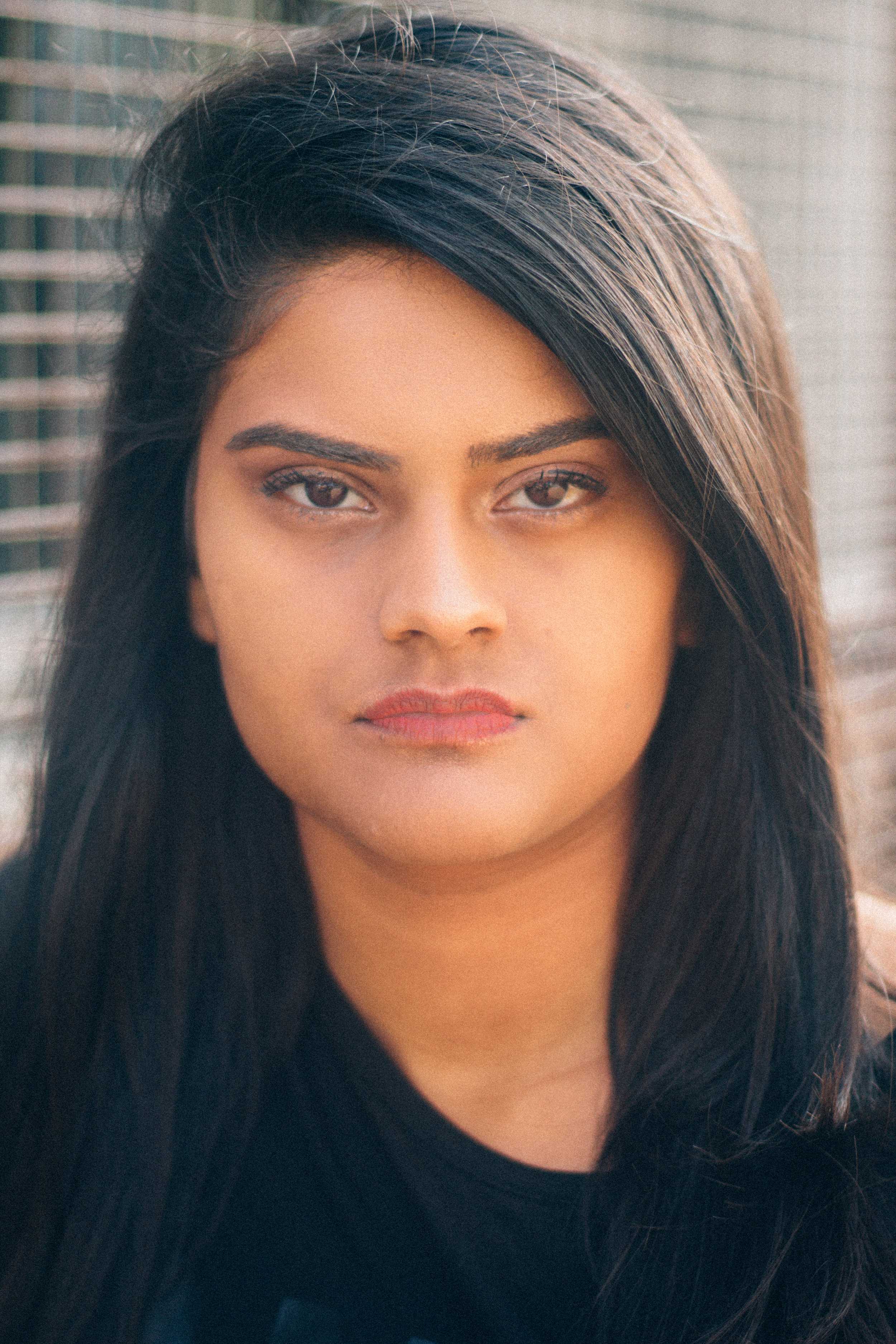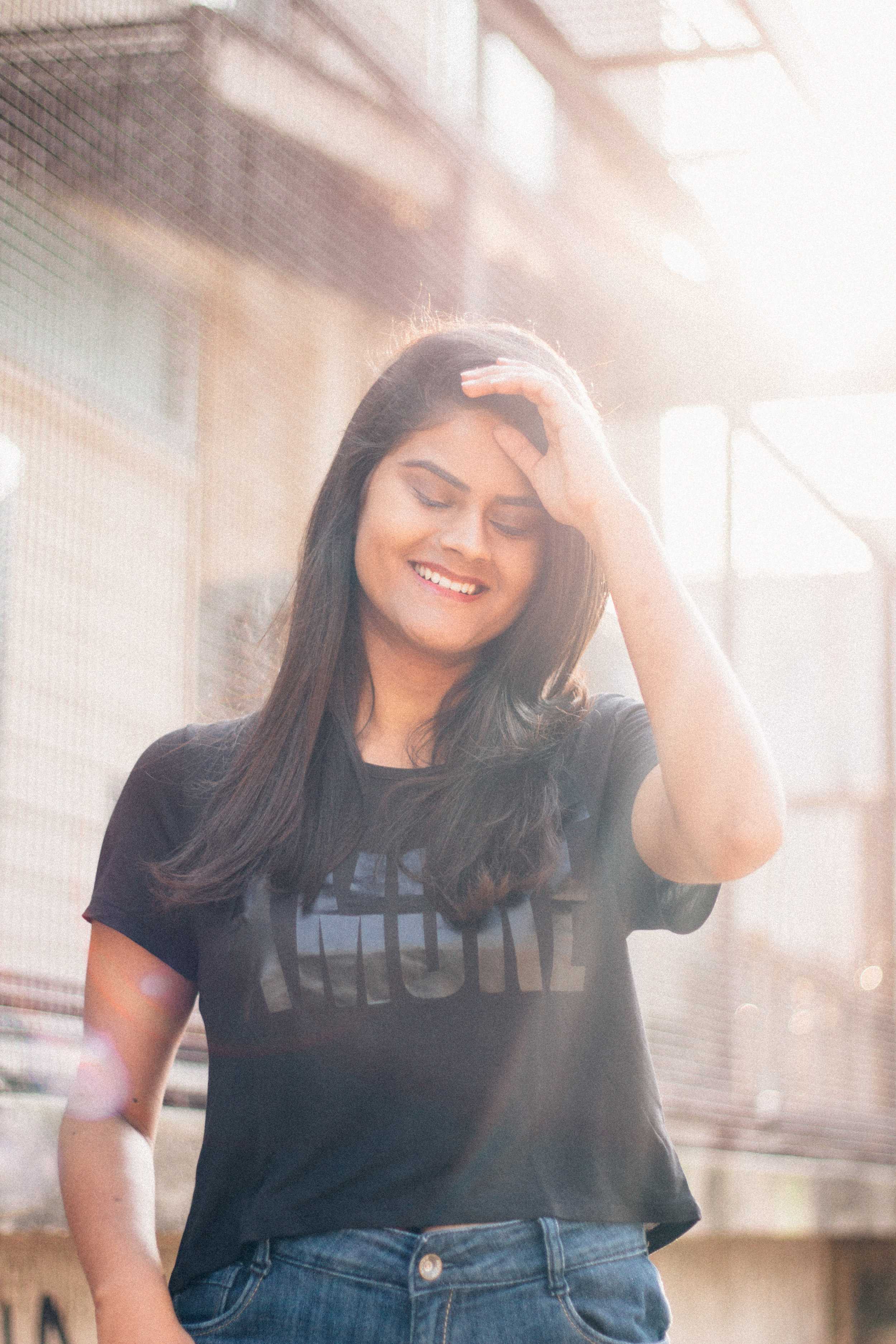At first glance, Niti Majethia is like any other college freshman—young, eager and full of excitement. But when she speaks, there is a certain thoughtfulness and quiet observance that makes her wise beyond her years. Perhaps that is how she became a published poet at the age of 15, and the author of two books by the age of 19. Majethia sat down with ORANGE to talk about the inspiration behind her words, her own activism and how she became an award-winning poet before she even started college.
Story by Rochelle Friedewald
Photos by Aaron Brock Dehn
Majethia became a published poet at the age of 15.
While most six year olds were riding bikes and playing games, Majethia was busy writing poetry. As a young girl in India trying to figure out herself, she found solace and a sense of self in her words. She was comfortable with doing things that seemed a bit outside the norm for her age, but it came with a cost. “I was picked on for doing the one thing that I loved,” says Majethia, who grew up in a small community in Mumbai, India. “That made me grow up with depression, anxiety and problems with self esteem. But I think after awhile it really motivated me to get out there, because then I started believing in my talent, no matter what people said.” At the age of 12, she started sending out her work to publishers and editors all over the world. There were a lot of rejections and unanswered emails, but nevertheless she persisted.
Finally, after three long years, she got a call. She won her first award, Most Reflective Poem of 2012, from Kidspirit Magazine. Majethia had the opportunity to read her poem, titled “After I Die” at the awards ceremony at New York University. From there, she was inspired to do more than just write. Majethia established the Indian Kidspirit Editorial Board to help empower young Indian writers like herself to express themselves and put out their work. Shining a light on the voices of young people emboldened her to promote the beauty and diversity of Indian culture and break stereotypes in her work. “There are certain characters in certain movies that become the stereotype of an Indian,” Majethia says. “People think that you talk weirdly and you smell of curry. I just want to change all that.There are different types of people and we need to acknowledge different cultures.”
Majethia established the Indian Kidspirit Editorial Board to help empower young Indian writers like herself.
For Majethia, words are the most powerful tool, and with her talent, she aimed to speak out about even more. In 2013, she traveled to Uplift Festival in Byron Bay, Australia, to speak publicly about her inspiration and issues that are dear to her. “That was my first big gig with public speaking,” Majethia says. “I spoke about bullying and all the challenges young people face today. There’s loneliness and isolation that we feel, even if we are surrounded by people.”
This common human experience is what seems to draw Majethia into her work. In her latest book, “Eunioa,” she strips away the superficial and talks about the depth beyond frivolities of pop culture, reminding her readers about what it really means to be alive. “It’s not complex stuff,” Majethia says. “It’s about finding beauty in the simplicity and finding beauty in the ordinary things in life. I think that’s what poetry is kind of about. It’s about conveying complex emotions, feelings, situations in a simple way. You don’t need to search for the extraordinary. You don’t have to be famous or rich to be happy with the ordinary.”
Majethia speaks with a frankness and passion that reveals why she has been so successful at such a young age, even when her own struggles with bullying and mental illness seemed set on dragging her down. She’s determined to not let anything stand between her and her work, even in the face of adversity. “It’s a really male dominated industry, not just in India but everywhere.” Majethia says. “I want to show the world that girls can do good work as well. No matter what your skin color is or what your background is, you can do good work. At the end of the day that’s what matters, what you put out into the world.”
Words are the most powerful tool for Majethia.














































